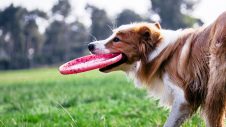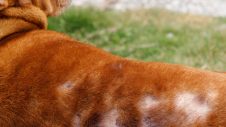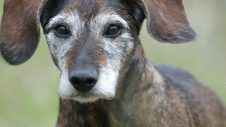What are anal sacs?
Anal glands (also called anal sacs) are two small glands just inside your pet’s anus. The material secreted into these glands is thick and foul smelling. Most wild animals can empty these glands voluntarily for scent marking or in self-defence (like a skunk). The anal sacs of most dogs empty when the dog defecates. However, in many dogs, the fluid produced in the anal sacs becomes thick and builds up in the sac causing irritation, called ‘anal sac impaction’.
Symptoms
The most common signs of impacted anal sacs include:
- scooting
- chewing at the anal region
- tail rubbing
- pain in the anal region
Treatment
There are ways to encourage anal sacs to empty naturally. A non-invasive technique that helps some patients is a change to a high fiber diet. This will produce a bulkier stool that may be more effective in emptying the sac as it passes by. If the sacs need to be emptied every few weeks or more, you may opt to have them permanently removed. The possible complications of this procedure include permanent incontinence. Also, draining tracts can develop after surgery if the gland is not completely removed. Despite these pitfalls, anal sac removal is considered a relatively simple surgery by most board-certified surgery specialists. If this procedure is to be done, we generally recommend that a specialist, (a veterinarian with extensive experience with anal sacculectomy), perform it.
Complications
When the anal sacs are impacted, bacteria can build up in the sacs and cause infection. When infection is present, the anal sacs may need to be flushed with an antiseptic solution and your dog may require a course of antibiotics. Sometimes, the infected anal sac can form an abscess that ruptures through the skin near the anus. Most anal sac abscesses respond well to antibiotic and anti-inflammatory treatment, though surgical flushing and drainage is usually necessary.
If your pet is showing symptoms of anal sack impaction, contact your local Greencross Vets to discuss diagnosis and treatment.

 Greencross Vets
Greencross Vets 







